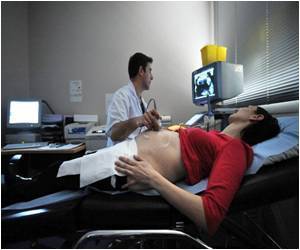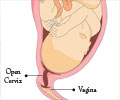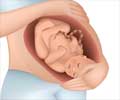A new study has linked the growth of an embryo during the early stages of pregnancy to its risk of miscarriage.

They measured the length of more than 500 single and twin embryos during the first trimester.
The Nottingham researchers tracked the growth of 247 singleton and 264 twin embryos conceived through IVF, because this allowed them to know the embryos' precise gestational age.
For each embryo, the distance from top of the embryo's head to the bottom of its buttocks, the crown-rump length, was measured once during the first trimester using an ultrasound scan.
The pregnancy was then monitored until birth.
Using the measurements, the researchers discovered that poor growth in the first 12 weeks of pregnancy was a good predictor of miscarriage.
They calculated that 77.8 percent of single embryo pregnancies that miscarried were growth restricted, while 98.1 percent of single embryo pregnancies that did not miscarry were not growth restricted.
Ninety-eight per cent of twin pregnancies that did not miscarry were not growth restricted.
Shyamaly Sur, who led the research, said that the findings should help to identify pregnancies at risk of miscarriage.
"There are various reasons why some embryos show restricted growth in the early stages of pregnancy. It could be down to an abnormality in the fetus or something in the environment of the womb," Sur said.
"More research is now needed to investigate the relationship between growth and the underlying causes of miscarriage in more detail.
"We are focusing on how blood flow to the womb lining and embryo quality influence conception rates and subsequent miscarriage.
"There is something else going on with twin embryos. We need more research in this area," he added.
The study was presented at the British Fertility Society annual meeting in Leeds.
Source-ANI
 MEDINDIA
MEDINDIA




 Email
Email










